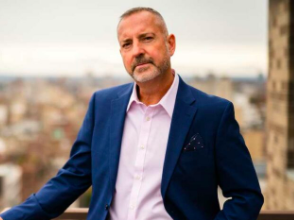251: Should You Acquire a Business?

Podcast: Download
A few weeks ago I had my CPA, Tom Wheelwright, on the show to discuss what’s going to happen with taxes in the next year or two under the new administration.
Of course, the news was generally bad for high-income earners. Taxes will invariably go up. The idea is that the rich can afford it and they ought to pay their “fair share”.
It drives me crazy when I hear people say that—after all, what’s fair? Is paying more than half of your income to the government fair? If you live in California you are already doing that. Anyway, let me get off that rant before it takes me into a sea of digression.
Let’s focus instead on who is going to be hit the hardest. Is it really the rich who are going to get hit the hardest with the tax hikes? I guess that depends on how you define rich.
The truth is that the true rich are not going to see their tax liability change by very much. Apart from professional athletes, the true rich are not W2 wage earners. It is the high paid W2 wage earners who will be hit the hardest with new tax laws.
Business owners and investors, those on the right side of Kiyosaki’s cash flow quadrant will likely, net-net, come out even. For all the tax hikes we will see, there will be just as many opportunities for tax mitigation through investments into the things that the government wants to promote. The tax code is, after all, just a series of incentives for investors to take advantage of. That’s why I suspect that for most truly rich people, tax law changes will not make a material change in terms of effective tax rates.
If it seems unfair—well, it kind of is. You see, the government sees business owners and investors as vehicles for driving the economy. They produce the goods and services and fund economic growth through investments. Conversely, W2 wage earners are treated as fat cats that do little to contribute to GDP growth. Hard-working professionals may disagree with this assessment but that’s the way the tax law is written and it is what future tax laws will be based on.
So, what can you do about it? Well, as Tom Wheelwright says, “If you want to change your tax, you have to change your facts.” From the perspective of decreasing your tax liability, that means shifting more of your resources over to the right side of Robert Kiyosaki’s Cash Flow Quadrant—the world of business ownership and investing.
If you are in our Accredited Investor Club, then you already know about the power of depreciation that comes along with investing in real estate. For most, shifting increasing amounts of financial resources into the investor quadrant is the smartest thing to do.
However, speaking from personal experience, if you are able to get involved with the business owning quadrant, you can really open up a whole new world of possibilities such as higher levels of passive income and the ability to take deductions that simply are not available to you in any other way.
The challenge is that business ownership is not that easy. In the vast majority of cases, business ownership is not passive. However, the financial rewards of business ownership can be dramatic and worth your time.
The challenge again is that not everyone is cut out for business ownership and you need to think very seriously about it before you take the plunge.
Then you need to figure out how you are going to do it. I’m probably a little different than most in that I feel most comfortable starting businesses from scratch. I have done it multiple times. While there certainly is a good chance of failing, the expenses incurred are often far less than other options.
The other way to get into business is through acquisition. We have discussed franchising on previous shows and it certainly has its associated advantages and disadvantages. Another option is simply to acquire a free-standing small business.
Admittedly this is not something with which I am terribly comfortable. Furthermore, this is not an area that I can point to someone as a trusted advisor. I am as clueless as anyone else in this world.
So, when Carl Allen’s team reached out to me to get him on the show I was happy to do it. Carl’s business revolves around business acquisition. This week’s Wealth Formula Podcast features a conversation I had with him to learn the basics.
So, if you are interested in significantly changing your facts and taking the plunge into entrepreneurship by acquiring a business, make sure to tune in to this week’s show!

Carl Allen is the editor of Dealmaker Wealth Society. Carl is an entrepreneur, investor and corporate dealmaker with almost three decades of experience. Carl has worked on transactions worth over $48 billion, which includes over 330 acquisitions and sales. For almost three decades, Carl has analyzed thousands of businesses, big and small, in 17 different countries and across nearly every business sector.
Carl’s reputation as an investor and corporate dealmaker has led him to advise some of the world’s largest corporations on investments, acquisitions, disposals and restructuring. Carl has also assisted hundreds of business owners in raising both equity and debt finance.
Carl shares his wisdom and experience through the Confessions of a Dealmaker newsletter and through his course training on buying a business without using any personal capital.
Shownotes:
- Buying a business vs. starting your own business.
- If you want to buy a business in an area that you know nothing about, it’s suicide.
- Dealmaker Wealth society.
 Send Buck a voice message!
Send Buck a voice message!




